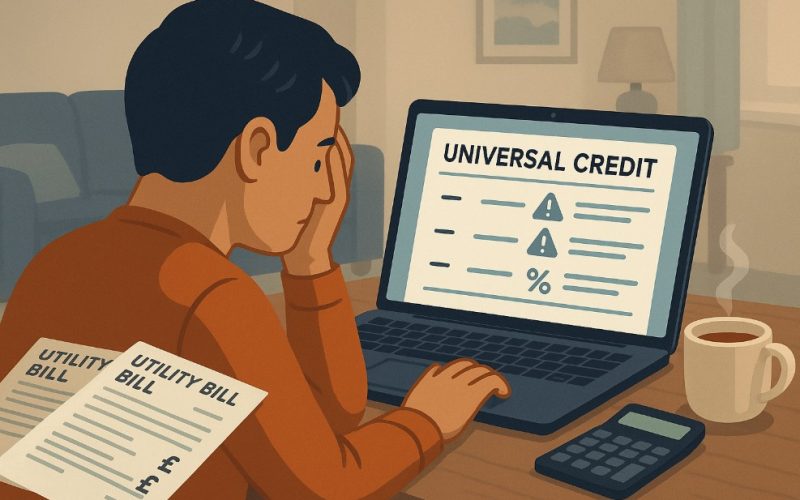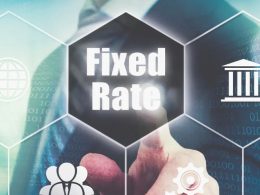Imagine logging into your Universal Credit account, expecting a set payment, only to discover that it’s been unexpectedly reduced.
The immediate question is, why? For many claimants across the UK, this experience triggers anxiety and confusion. Whether it’s a past loan, benefit overpayment, or a sanction, the deductions can leave you financially stretched if you don’t understand where your money is going.
This comprehensive guide will help you make sense of every penny taken from your Universal Credit and what you can do about it.
Why Is Money Being Taken Off My Universal Credit?
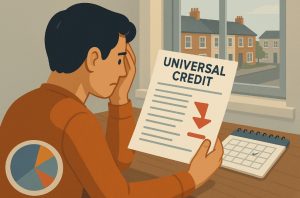
Universal Credit deductions typically happen when you owe a debt. These debts may relate to advance payments, benefit overpayments, fraud penalties, sanctions, or third-party debts such as rent arrears and utility bills.
Understanding the Basics
When you receive less money than expected, the deduction amount is usually detailed in your Universal Credit statement. You can find this by logging into your Universal Credit account and navigating to the ‘Payments’ section. Under ‘What we take off – deductions’, you’ll find a breakdown of amounts and reasons.
These deductions serve various purposes. The Department for Work and Pensions (DWP) may recover past benefits you were overpaid, or you may be repaying an advance you took when first claiming Universal Credit.
In other cases, the deductions go directly to third parties to cover essential bills, such as gas or rent, under an arrangement called third-party deductions.
Understanding the type of debt involved helps you determine who to contact and how to respond. Let’s explore these different types more closely.
Find Out About Money Taken Off Your Universal Credit Payments?
If you’ve noticed that your Universal Credit payment is lower than expected, it’s likely because a deduction has been made to repay a debt or meet a financial obligation.
These deductions can include repayments for advance loans, benefit overpayments, tax credit debts, sanctions, fraud penalties or third-party deductions like rent arrears and unpaid utility bills.
To find out exactly what has been taken off:
- Log into your Universal Credit online account
- Go to the ‘Payments’ section
- Click on your most recent statement
- Look under ‘What we take off – deductions’ to see details
This section will show each deduction amount and the reason it was taken. If something seems unclear, check your Universal Credit journal for messages or letters explaining the deduction. You can also contact Universal Credit or the relevant third party (like your landlord or utility provider) if more clarity is needed.
Understanding your deductions is essential for managing your budget, and support is available if you’re struggling. You may be able to apply for a financial hardship decision or get help from independent organisations like Citizens Advice.
What Types of Debt Can Be Deducted from Universal Credit?
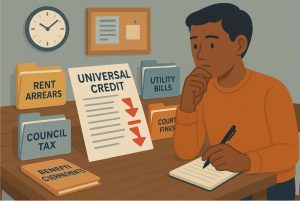
Universal Credit can deduct different kinds of debts. These deductions are used either to repay money to the DWP or sent directly to third parties. Here’s an overview:
Common Deductible Debts
- Advance payments: Loans taken when first applying for Universal Credit
- Overpayments: Money received in error either through Universal Credit or previous benefits
- Tax credit overpayments: Including Working Tax Credit and Child Tax Credit
- Budgeting loans: Offered to cover emergencies or essential needs
- Hardship payments: Received when under a sanction or fraud penalty
- Third-party debts: Including rent, utilities, council tax, or child maintenance
Types of Deductible Debt
| Debt Type | Description | Repayment Limit |
| Advance Payment | Borrowed at the start of a UC claim | Up to 15% of standard allowance |
| Benefit Overpayment | Extra UC received by mistake | Up to 15% |
| Budgeting Loan | Crisis/urgent needs loan | Agreed at the time of loan |
| Tax Credit Overpayment | Old Working/Child Tax Credit debts | Up to 15% |
| Third-Party Deductions | Rent, utilities, court fines, maintenance | Up to 3 deductions at once |
These debts are automatically deducted from your Universal Credit before it’s paid to you. If your deductions exceed 15% of your standard allowance, it’s likely due to last resort deductions, which prioritise urgent needs like housing or electricity.
Understanding Universal Credit Advance Loan Repayments
Advance payments are one of the most common deductions. These are short-term loans offered when you’re first waiting for your full Universal Credit payment to come through.
Repayment Rules in 2025
- New claims/transfer advances: Must be repaid within 24 months
- Change of circumstances advance: Repaid within 6 months
- Budgeting advance: Also repaid within 24 months
Universal Credit may extend these deadlines by up to three or six months depending on financial hardship. Repayments are generally capped at 15% of your standard allowance.
Loan Balance Check
You can check how much you still owe by logging into your Universal Credit account and looking at your loan balance under Payments.
If you experience a fraud penalty or sanction, your advance repayments will pause until the penalty ends. At that point, deductions resume until the loan is fully repaid.
Overpayments and Tax Credit Recovery Explained
Overpayments happen when you’ve received more Universal Credit than you’re entitled to. This could result from incorrect information, a change in circumstances, or a processing error.
How Overpayments Are Handled?
- You’ll receive a message in your journal or a letter
- Repayments are taken at up to 15% of your standard allowance
- If earnings rise above the threshold, deductions can increase
Tax Credit Overpayments
With the end of tax credits, any outstanding overpayments are now recovered through Universal Credit. HMRC will have sent a TC1131 letter detailing how much will be deducted.
If you claimed as a couple, the debt is split between partners. Multiple overpayments can be recovered simultaneously, depending on your circumstances.
Third Party and Last Resort Deductions: What’s the Difference?
Third-party deductions are payments made directly from your Universal Credit to another organisation.
What Qualifies?
- Child maintenance
- Unpaid utility bills
- Rent arrears
- Service charges
- Court fines
Only three third-party deductions can be active at once. Each one typically deducts 5% of your standard allowance.
Last Resort Deductions
These differ because they’re used to prevent eviction or loss of essential services. They’re usually higher priority and can exceed the 15% cap.
Third Party vs Last Resort Deductions
| Type | Purpose | Limit |
| Third Party Deduction | Rent, utilities, child maintenance | Up to 3 active at 5% each |
| Last Resort Deduction | Prevent eviction or disconnection | May exceed 15% |
You’ll receive a message in your journal when one begins, and you can request help if the deductions are unaffordable.
What Happens If You Receive a Fraud Penalty or Sanction?
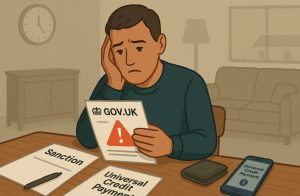
A fraud penalty is applied when you knowingly provide incorrect information. A sanction happens when you fail to meet your Universal Credit commitment.
Impact on Payments
- Can reduce your standard allowance by up to 100% (single) or 50% (joint claims)
- No other deductions except last resort are taken during this time
- Only one penalty or sanction applies at a time per person
If you are affected, you may be eligible for a hardship payment. This is a repayable loan offered when sanctions leave you without essentials.
Repayment of Hardship Payments
You begin repayment once the sanction or penalty ends. If your income meets or exceeds the Conditionality Earnings Threshold for six months, the remaining debt may be cancelled.
Struggling to Repay? How to Request a Financial Hardship Decision
When deductions make it hard to meet your basic needs, you can apply for a financial hardship decision. This can reduce how much is taken from your benefit.
You May Be Eligible If You’re Repaying
- Benefit debt
- Budgeting loans
- Advance payments
- Rent arrears exceeding 10%
A successful hardship decision will apply from the next assessment period. In some cases, advance loan repayments may be deferred for up to three months.
It’s important to act fast and speak to Debt Management if you’re falling behind.
How Much Can Be Taken Off Your Universal Credit Each Month?
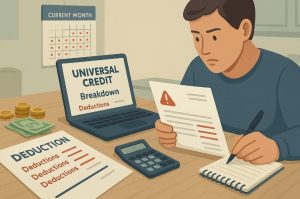
The total amount deducted from your Universal Credit is calculated monthly during your assessment period. The standard cap is 15% of your standard allowance.
However, certain urgent debts may push this higher.
Monthly Deduction Limits
| Deduction Type | Maximum Deduction Rate |
| Benefit Overpayment | Up to 15% |
| Advance Repayments | Up to 15% |
| Third Party Deductions | 5% per creditor (max 3) |
| Last Resort Deductions | May exceed 15% total |
In joint claims, your combined allowance is used. Deductions are taken before the payment reaches your bank account.
Who to Contact About Money Taken Off Your Universal Credit Payments?
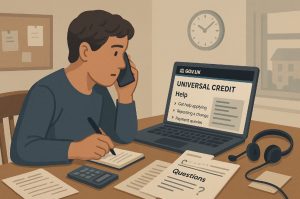
The person or department you need to contact depends entirely on the type of deduction.
Contact Guide for Deductions
| Deduction Type | Who to Contact |
| UC Advance or Overpayment | Universal Credit via your online journal |
| Tax Credit Overpayment | HMRC |
| Rent or Utilities | Landlord or energy provider |
| Budgeting/Crisis Loan | Universal Credit Debt Management |
| Fraud Penalty or Sanction | Jobcentre Work Coach |
Be proactive. The sooner you understand your deductions, the better equipped you’ll be to manage them or ask for changes.
Conclusion
Understanding why money is taken off your Universal Credit payment can bring peace of mind in financially stressful times. Whether it’s an old advance, tax credit overpayment, or rent arrears, each deduction has a reason, and a resolution.
By staying informed, checking your account regularly, and knowing your rights, you can take control of your benefits and ensure that no penny goes unexplained.
When in doubt, don’t hesitate to ask for help or apply for a hardship decision. These systems exist to support, not punish. You’re not alone in this, and there are resources ready to guide you.
Frequently Asked Questions
What happens if I can’t afford my Universal Credit deductions?
You can request a financial hardship decision, which may reduce the amount taken from your benefit.
Can I stop a third-party deduction?
In most cases, only the organisation being paid can stop the deduction, such as your landlord or energy provider.
How much can Universal Credit deduct per month?
Up to 15% of your standard allowance unless it’s a last resort deduction, which can exceed that.
What is a last resort deduction?
It’s a priority deduction to prevent eviction or disconnection of essential services like gas or electricity.
Can multiple deductions happen at the same time?
Yes, but only three third-party deductions are allowed at once. Others follow a priority order.





